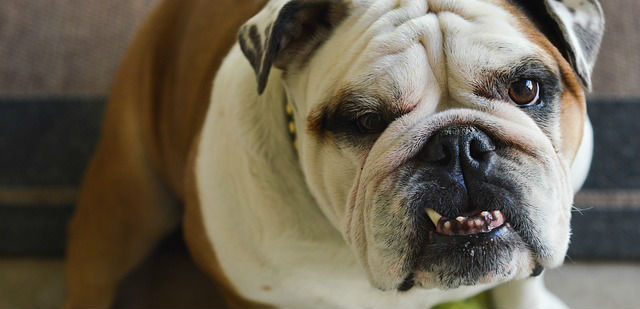Hi Lorraine,
Thanks for your question.
The first thing I’ll say right off the bat is a warning. I’ve never met your dog so I don’t know its propensity for lashing out. Even though we may trust our dogs completely, you never know what stimulus could trigger a bite. It may not be out of aggression. It could be from anxiety, pain or even simple surprise. So it’s very important that every moment is supervised as closely as possible and monitored for any cues that are concerning.
It’s always a good idea to evaluate your pet’s health first. Go to your veterinarian for a consultation and physical examination. I would recommend performing general wellness screening such as blood work and a urinalysis. Behavioural changes like this can be initiated by underlying medical conditions or pain. This step could diagnose and treat a possible cause for this condition.
In your particular case, it sounds as though your dog is aggressive towards visitors, groups of people or something related to their presence. I would recommend that you monitor and identify any other events that stimulate this aggressive response. Then you can implement a treatment plan called desensitization and counterconditioning. Desensitization means exposing him to the anxiety-creating stimulus in small doses, such as having someone approach the front door, make noise, then leave. They can then walk up to the door again and this time make one knock on the door, then leave. Slowly increase the intensity of these episodes. The anxiety that these cues cause will become diminished because they don’t necessarily mean that you’ll be leaving your dog on its own anymore. Counterconditioning means giving him treats and praise while exposing him to the anxiety-creating stimulus so that he is happy in these moments rather than anxious. For example, you can feed a treat as the person approaches the door. Keep doing these things more often and for longer periods of time until their anxiety-creating effect is diminished.
The other way is giving him an anti-anxiety medication. Natural supplements or prescribed medications have the potential to help tremendously in most cases and they are known to be very safe. I encourage you to speak to your veterinarian about these options and the pros and cons associated with them. If the anxiety is always present, such as a general nervousness, it works really well. If the anxiety is very acute and intense, like it is in your particular case, it may not be as effective. I try not to recommend drugs for behavioural modification because most people have a natural unease with this plan, but in cases where the anxiety is really impacting your dog’s quality of life in a negative way and putting you or other people at risk, I think it is very important to consider.
There are natural products you could consider as well. These are nutraceuticals that reduce anxiety and some will work really in certain dogs, but not as well in others. It may be a case or trial and error to get it right. Discuss these options with your veterinarian.
I hope this helps. Good luck!
Dr. Clayton Greenway
